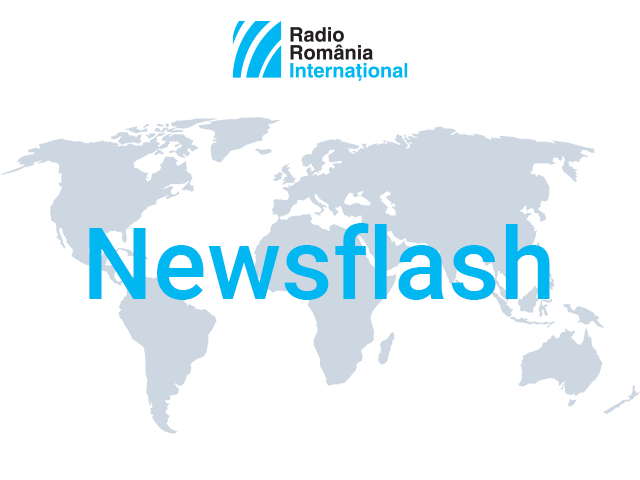March 11, 2023 UPDATE
A roundup of domestic and international news

Newsroom, 11.03.2023, 19:00
SCHENGEN – Romanias president, Klaus Iohannis, is next week paying a visit to Bulgaria for Schengen talks with his counterpart Rumen Radev. On numerous occasions, Klaus Iohannis gave assurances Romania is neither a source of migration nor a transit country. Meanwhile Bulgaria is struggling to secure its Turkish border in cooperation with European authorities and Ankara. Bulgarias Interior Minister, Ivan Demergiev, explained that the European Council refused the idea of building a protection wall, although it agreed to provide drones and radars and increase the presence of FRONTEX. We recall that the Justice and Home Affairs Council meeting of December 8, 2022 denied Schengen accession to Romania due to opposition from Austria and the Netherlands. Austria voted against whereas the Netherlands accepted Romania joins without Bulgaria, despite the two countries having submitted a joint bid. At present both countries have complied with Schengen accession criteria.
INVESTMENT – Net investment in Romanian economy stood at over €30 billion in 2022, up by 8.5% compared to the previous year, Prime Minister Nicolae Ciucă has said. The Romanian official says this proves the positive impact of measures taken by the government. Investments in development will preserve jobs and generate new ones and will increase revenues in the long-term, Nicolae Ciucă wrote on Facebook. According to recent data published by the National Statistics Institute, the GDP went up by 4.8%, foreign direct investment stood at €11.3 billion, our country had an EU fund absorption rate of 73% and exports totalled €85 billion. On the other hand, government debt dropped from 48.3% in November 2022 and 48.9% in 2021 to 47.2% in December 2022, the Finance Ministry reports. Public investment spending is set at 7.2% of the GDP in 2023.
MOLDOVA – The Biden administration will provide $300 million to the Republic of Moldova in energy assistance and share intelligence with this country, which Russia is trying to destabilize, the White House has announced. National security spokesman John Kirby told the media that, although it has not noticed any immediate threat to the Republic of Moldova, the USA believes Russia is trying to weaken this small country, to orchestrate an insurrection and install a pro-Moscow government. Washington trusts democratic and economic institutions in Chișinău and their capacity to respond to these threats, the US official went on to say. “We will continue to provide assistance to this country”, John Kirby added. Protests against the Moldovan government and president, organized by the pro-Russian Shor Party, have been held repeatedly in the Moldovan capital in the last months.
EU-US RELATIONS – The United States and the European Commission have agreed to eliminate negative competitiveness from the process of greening economies. After talks held in Washington, US president Joe Biden and European Commission president Ursula von der Leyen announced the start of negotiations with respect to an overarching US plan to subsidize the national car industry, which has produced concerns in a number of the USAs European partners. The $370 billion plan for climate action spending will provide credits to American consumers to buy new or second-hand electric vehicles. The law restricts the awarding of credits to vehicles built in North America only and provides strict rules with respect to essential minerals used in the building of vehicle batteries. According to Radio Romanias correspondent, European officials were very vocal in their criticism, saying the law reportedly puts EU businesses at a disadvantage. The two leaders also discussed plans to keep exerting economic pressure on Russia in the context of its war in Ukraine. The Biden administration has warned its allies that Beijing might soon deliver weapons to Moscow. The US intelligence says Beijing will seek to consolidate its ties with Moscow in order to provoke the United States, despite the international community having condemned the Russian invasion of Ukraine.
CHINA – Chinese leader Xi Jinping has appointed Li Qiang, the former head of the Communist Party, as the new Prime Minister. Qiang is replacing Li Keqiang, who retires after two five-year mandates during which he managed the worlds second largest economy. Seen as a pragmatic politician who favors the business sector, Li Qiang is faced with securing the economic recovery of China after the Covid pandemic, restoring trust among consumers and the private sector and dealing with the turmoil in international politics. Li Qiang will also have to deal with growing tensions with the West, mainly generated by the USAs efforts to block Chinas access to key technologies, while a number of global companies are also seeking to diversify their supply chains.
ICR – Bucharest has greenlit the creation of a Romanian Cultural Institute (ICR) branch in Tokyo. Government spokesman Dan Cărbunaru pointed out no additional vacancies have been approved for other Institutes abroad. The opening of the ICR branch in Tokyo capitalizes on the Strategic Partnership freshly singed between Romania and Japan and will boost the visibility of Romania in this country and step up cultural and scientific relations by promoting information pertaining to Romanias cultural and academic life, the Government writes. Right now, the only ICR branch in Southeastern Asia is in Beijing, China, opened in 2015. (VP)




























